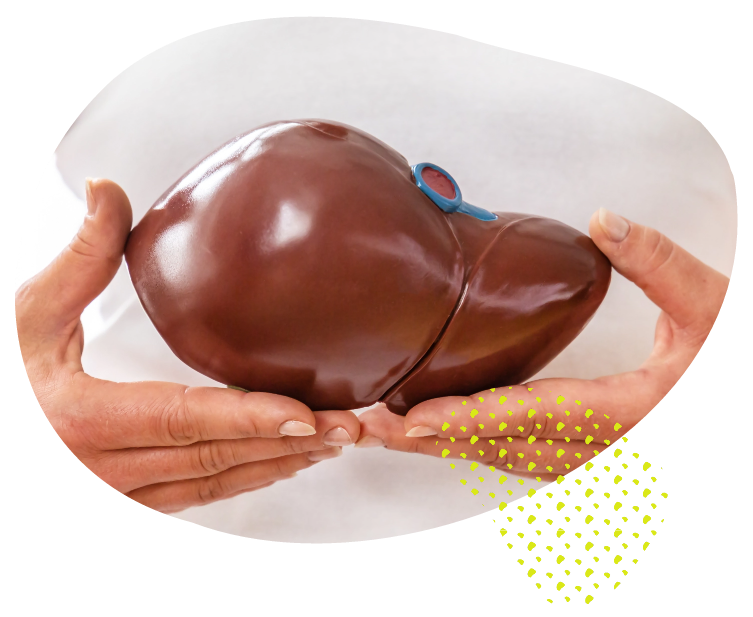Liver Disease

What causes kidney disease?
Liver disease can be caused by many different factors. Due to the various forms of liver disease there is not one single profile of symptoms or causes that help with diagnosis. Some common risk factors of liver disease include:
- Obesity
- Diabetes
- Exposure to certain chemicals and toxins including prescription and over the counter medications, herbal medications/supplements and recreational drugs.
- Excessive alcohol consumption
- Family history
- Exposure to hepatitis B or C virus in blood or bodily fluids.
- Chronic fatigue
How can Bites Dietitians help?

An interesting fact about diet and liver disease
A healthy liver contains very little or no fat at all. However, if you consume too much alcohol or eat in a calorie surplus, your body deals with this excess consumption by turning excess energy into fat. This fat is then stored in the liver cells. This fat within the liver cells can build up over time and this is what causes fatty liver disease. About 1 in 3 Australians have fatty liver disease and it is more common in people who have hypertension, high cholesterol, type 2 diabetes and those who are overweight or obese.

How can Bites Exercise Physiologists help?
What improvements can you expect from a tailored dietary and exercise prescription?

Helpful things to bring/remember before your first appointment
- Pathology results
- Referral
- HbA1c, Fasting Glucose, Oral Glucose Tolerance Test results (OGTT) and insulin studies
- List of medications you are on and dosages
- Any medical history from your GP or specialist that might be helpful for us to know.
Want To Know More About Other Conditions We Treat?
